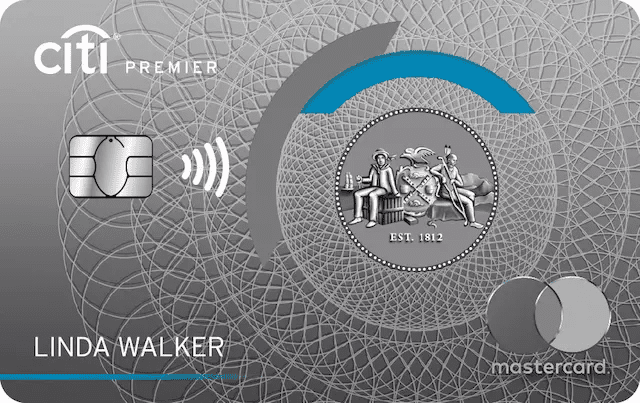A Citizens Bank home equity loan can be a powerful financial tool for homeowners looking to tap into their home’s value. Whether you’re planning significant renovations, consolidating debt, or funding a major purchase, this loan option may provide the flexibility and financial support you need. However, it’s vital to evaluate the repayment schedule and understand the long-term impact on your finances. This comprehensive guide will help you assess the Citizens Bank home equity loan against alternatives and make an informed decision.
Toc
- 1. Understanding Home Equity Loans from Citizens Bank
- 2. Citizens Bank Home Equity Loan Rates: Factors and Considerations
- 3. Related articles 01:
- 4. Citizens Bank Home Equity Loan Requirements: What You Need to Know
- 5. Application Process: Citizens Bank Home Equity Loan Login and Submission
- 6. Payment Options and Management
- 7. Citizens Bank Home Equity Line of Credit (HELOC): An Alternative Option
- 8. Citizens Bank Home Equity Loan Reviews: Customer Experiences
- 9. Smart Borrowing Tips
- 10. Conclusion: Making an Informed Decision
- 11. Related articles 02:
Understanding Home Equity Loans from Citizens Bank

Citizens Bank home equity loans offer homeowners an effective way to leverage the equity they’ve built in their properties. This financial product allows you to borrow against your home’s value, providing a structured approach to finance major home improvements or manage debt.
What Makes Citizens Bank Home Equity Loans Unique?
A Citizens Bank home equity loan has several appealing features:
- Fixed Interest Rates: One of the primary advantages of Citizens Bank home equity loans is that they typically feature fixed interest rates. This means your monthly payments will remain consistent throughout the life of the loan, making it easier to budget. However, it’s crucial to remember that while the interest rate is fixed, your overall cost will depend on the loan term. A shorter-term loan, such as a 5-year loan, will result in higher monthly payments but lower overall interest paid compared to a longer-term loan like a 15-year or 30-year loan. For example, a $20,000 loan at 7% interest over 5 years will have significantly higher monthly payments than the same loan over 15 years, but the total interest paid will be considerably less.
- Competitive Loan Terms: Citizens Bank often offers competitive terms, which can help you save money in the long run. Whether you need a small amount for minor repairs or a larger sum for extensive renovations, you can find a loan that fits your needs. However, it is important to compare Citizens Bank’s offerings with other lenders, including online lenders and credit unions, to ensure you are getting the most competitive rates and terms available. Many online lenders offer streamlined application processes and potentially lower rates.
- Straightforward Application Process: The application process for a home equity loan with Citizens Bank is generally straightforward. You can apply online or in person, and the required documentation is clearly outlined, making it easier for borrowers.
- Potential Tax-Deductible Interest: Depending on your specific circumstances, the interest paid on a home equity loan may be tax-deductible. It’s advisable to consult with a tax professional to understand how this could benefit you.
Citizens Bank Home Equity Loan Rates: Factors and Considerations
Understanding the Citizens Bank home equity loan rates requires examining several key factors that can influence the interest rates you receive.
Key Rate Determinants
Credit Score
Your credit score is one of the most significant factors that lenders consider when determining your interest rate. Generally, the higher your credit score, the lower your interest rate will be. Here’s a breakdown of how different credit score ranges can affect your rates:
- Excellent Credit (750+): Borrowers with excellent credit can expect the most favorable rates, often significantly lower than market averages.
- Good Credit (700-749): This range still qualifies for competitive rates but may not be as low as those available to borrowers with excellent credit.
- Fair Credit (620-699): Borrowers in this category may face higher interest rates, and some lenders may require additional documentation or conditions.
- Poor Credit (below 620): Securing a loan may be difficult, and if approved, the rates will likely be high.
It’s important to note that lenders use various credit scoring models, such as FICO and VantageScore, and these models may produce slightly different scores. Additionally, factors beyond your credit score, such as your debt-to-income ratio and employment history, will influence a lender’s decision. A borrower with a high credit score but a high debt-to-income ratio may still face challenges securing a favorable interest rate.
Loan-to-Value (LTV) Ratio
The LTV ratio measures the loan amount against the appraised value of your home. A lower LTV indicates less risk to the lender and can lead to better interest rates. Most lenders prefer an LTV under 80%, meaning you should have at least 20% equity in your home.
Market Conditions
Economic factors, such as inflation rates and the overall health of the housing market, can influence interest rates. Keeping an eye on these conditions can help you time your application for a home equity loan more strategically.
2. https://phucsonglong.com/mmoga-marcus-personal-loan-alternatives-after-discontinuation/
4. https://phucsonglong.com/mmoga-credit-union-home-equity-loan-your-guide-to-lower-rates/
To help you navigate these factors and estimate your potential monthly payments, Citizens Bank provides a useful online home equity loan calculator. This tool allows you to input different loan amounts to see how much you could potentially borrow, adjust the interest rate to reflect your credit score and current market conditions, and view various loan terms (15, 20, or 30 years) to understand how they affect your monthly payments. Using the calculator can provide valuable insights, enabling you to plan effectively for your financial future. It’s a great way to visualize how different scenarios could impact your monthly budget and long-term financial goals.
Citizens Bank Home Equity Loan Requirements: What You Need to Know
Before applying for a Citizens Bank home equity loan, it’s essential to understand the requirements that will need to be met.
Documentation Checklist
To streamline the application process, gather the following documentation:
- Proof of Income: This can include recent pay stubs, W-2 forms, or tax returns. Lenders want to verify that you have a stable income to support your loan payments.
- Current Mortgage Statement: This shows your existing mortgage balance and helps the lender determine your available equity.
- Property Value Documentation: While a home appraisal will be conducted, providing recent property tax assessments or market analyses can help give the lender a clearer picture of your home’s value.
- Government-Issued ID: A valid ID (driver’s license or passport) is necessary to verify your identity.
- Details about Existing Debts: Lenders will look at your overall financial situation, including any other debts you may have.
Credit Score Guidelines
Citizens Bank typically requires a minimum credit score of 620. However, for those with higher scores, better loan terms and lower interest rates may be available. It’s wise to check your credit score and address any issues before applying.
Current Trends in Home Equity Lending
The Federal Reserve’s interest rate hikes in 2022 and 2023 have significantly impacted interest rates across the board, including home equity loans. While fixed-rate home equity loans offer protection from fluctuating interest rates, the initial rates offered are higher than in previous years of lower interest rates. This makes careful budgeting and comparison shopping even more crucial for borrowers. Furthermore, the increasing popularity of home improvement projects and debt consolidation continues to drive demand for home equity loans.
Application Process: Citizens Bank Home Equity Loan Login and Submission
Applying for a Citizens Bank home equity loan involves several straightforward steps. Here’s what to expect during the process:
Application Steps
- Gather Required Documentation: Before you start the application, ensure you have all necessary documents ready.
- Visit Citizens Bank Website or Local Branch: You can apply online or in person, depending on your preference. If you choose to apply online, navigate to the home equity loan section on the Citizens Bank website.
- Complete Online Application: Fill out the application form, providing all requested information accurately. This may include personal information, details about your income, and your current mortgage status.
- Submit Documentation: Along with your application, you will need to upload or provide the necessary documentation.
- Wait for Home Appraisal: After submitting your application, Citizens Bank will typically order a home appraisal to determine your property’s value. This step is crucial in establishing the amount you may be approved for.
- Receive Loan Decision: Once the appraisal is completed and your application is reviewed, you will receive a decision regarding your loan approval.
Citizens Bank Home Equity Loan Phone Number
For personalized assistance or questions about the application process, you can contact Citizens Bank at 1-800-CITIZENSBANK (1-800-248-4736). Their representatives can guide you through any uncertainties you may have.
Payment Options and Management
Once you’ve secured your Citizens Bank home equity loan, understanding your payment options and managing your loan effectively is crucial.
Repayment Strategies
- Fixed Monthly Payments: Citizens Bank home equity loans typically feature fixed monthly payments. This structure allows you to budget effectively since your payment amount will remain the same throughout the loan’s term.
- Repayment Terms : Loan terms generally range from 5 to 30 years, giving you flexibility in choosing a term that aligns with your financial goals.
Available Payment Methods
Citizens Bank offers various methods for making payments on your home equity loan:
- Online Portal: You can easily manage your loan and make payments through the Citizens Bank home equity loan login portal. This online platform allows you to view your balance, track payments, and access loan documents.
- Phone Payments: For those who prefer to speak with a representative, payments can also be made over the phone.
- Mail-in Checks: You can send payments via traditional mail, although this may take longer to process.
- Automatic Bank Transfers: Setting up automatic transfers ensures that your payments are made on time, helping you avoid late fees.
Avoiding Late Payment Penalties
It’s vital to stay on top of your payment schedule to avoid penalties. Citizens Bank may impose fees for missed payments, which could include additional charges or increased interest rates. Here are some tips to help you stay on track:
- Set Up Automatic Payments: This is one of the easiest ways to ensure your payments are made on time.
- Maintain a Buffer in Your Account: Keeping a little extra money in your account can help cover unexpected expenses that might otherwise lead to missed payments.
- Use the Citizens Bank Home Equity Loan Login: Regularly check your account to stay informed about your payment schedule and any upcoming due dates.
Citizens Bank Home Equity Line of Credit (HELOC): An Alternative Option
While a Citizens Bank home equity loan can be a great solution, it’s essential to consider all your options. The Citizens Bank home equity line of credit (HELOC) is another product worth exploring.
HELOC vs. Home Equity Loan
| Feature | Home Equity Loan | HELOC |
|---|---|---|
| Fund Access | Lump sum | Revolving credit |
| Interest Rate | Fixed | Variable |
| Repayment | Consistent monthly payments | Flexible drawing and repayment |
| Usage | Specific projects | Ongoing expenses |
A HELOC provides flexibility, allowing you to borrow as needed, making it ideal for ongoing projects or expenses. However, it typically comes with variable interest rates, which can change over time.
Citizens Bank Home Equity Loan Reviews: Customer Experiences
Common Positive Feedback
Many customers have shared their experiences with Citizens Bank home equity loans, and several themes emerge from these reviews:
- Competitive Interest Rates: Numerous borrowers appreciate the competitive rates offered by Citizens Bank, often citing them as a significant advantage over other lenders.
- User-Friendly Online Platform: The ease of using the online portal for application and management has received positive remarks. Customers find it convenient to track their loans and make payments.
- Responsive Customer Service: Many borrowers report satisfaction with the customer service provided by Citizens Bank, noting that representatives are knowledgeable and willing to assist.
Potential Considerations
While there are many positive aspects, some customers have expressed concerns:
- Strict Qualification Requirements: Some borrowers found the credit score and documentation requirements to be stringent, which can be a barrier for those with less-than-perfect credit.
- Potential Closing Costs: As with any loan, there may be closing costs involved, which can add to the overall expense of borrowing.
- Risk of Home Foreclosure: Like all home equity loans, there is a risk of foreclosure if payments are missed. Borrowers should be mindful of their financial situation to avoid this outcome.
Smart Borrowing Tips
To enhance your chances of securing favorable terms on your Citizens Bank home equity loan, consider the following tips:
- Check Credit Reports Before Applying: Review your credit reports to identify any inaccuracies or areas for improvement.
- Compare Multiple Financing Options: Don’t settle for the first loan offer you receive. Shopping around can help you find the best rates and terms.
- Calculate Total Loan Costs: Consider not just the interest rate but also any fees associated with the loan. This will give you a clearer picture of your total costs.
- Consider Long-Term Financial Impact: Think about how taking out a home equity loan will affect your overall financial situation in the long run.
- Consult Financial Advisors: If you’re unsure about the best course of action, seeking advice from financial professionals can provide valuable insights.
Conclusion: Making an Informed Decision
A Citizens Bank home equity loan can be an excellent financial tool when used strategically. By understanding rates, requirements, and potential benefits, homeowners can make informed decisions that align with their financial goals.
Careful planning and thorough research are key to successfully leveraging your home’s equity for improvements or financial needs. Remember to utilize tools like the Citizens Bank home equity loan calculator and consult with professionals when necessary. With the right approach, you can turn your home equity into a valuable resource for enhancing your living space and achieving your financial objectives.










